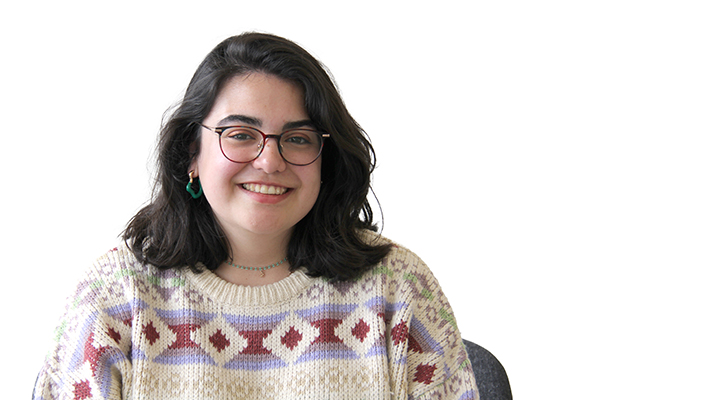21st Century Women in Technology: Alicia Silva
Alicia Silva went from wanting to be an interior designer to architect and maths teacher, until her secondary school technology and physics teacher Anna crossed her path and introduced her to robotics. Our latest guest for our 21st Century Women in Technology series is now an expert in Machine Learning and Optimisation in the Intelligent Systems area of Gradiant. She is currently working on the development of technology to improve efficiency in industry and agriculture and to make production processes in both areas more sustainable. So thanks to her role model Anna and her innate curiosity, Alicia Silva is now using her talent to make a valuable contribution to the field of technology and thus to society. Aware of the importance of having a female role model, she is collaborating with the #InspiraSTEAM programme: she visits some secondary schools to motivate other young women to study technology careers. This helps ensure that future tech talent doesn’t get lost along the way.
What did you want to do when you were little?
Like most people, I changed my mind all the time, as I discovered things I liked. I started out wanting to be a maths teacher but I also went through phases when I wanted to be an interior designer, an architect… Until I realised that engineering would probably be the most versatile path if I didn’t have it all figured out.
Why did you choose technology?
I suppose what attracted me most to this field, as a curious person, was that it offered a wide range of knowledge. I remember a turning point was the first time we had robotics practice in secondary school. I loved the experience of working on an initial idea and then getting to see it in operation.
II was also very attracted by the ability to come up with solutions that improve our environment.
Where did you plan to study? Why?
I always planned on studying one of the engineering courses at the University of Vigo to stay close to my family and because most of my friends also studied in Vigo.
What are you currently working on?
At the moment, I am working on two projects focusing on agriculture and industry. On the one hand, in the industrial context, we are developing a platform for monitoring Machine Learning models that allows the detection of errors in production processes, as well as the development of strategies to improve them.
On the other hand, in the project aimed at the primary sector, we are developing a recommendation and anomaly detection algorithm for crop fertilisation. With this we aim to provide users with farm data in real time. Furthermore, by adapting the quantities of fertilisers and phytosanitary products to real needs at any given time, we can minimise the environmental impact of the use of these products.
What do you like most about your work?
It might sound like a cliché, but what I value most in my job is the possibility of continuous learning. At the same time, as frustrating as it can be at times, I love the number of challenges I have to face. The whole process of looking at a new approach, testing and arriving at a suitable solution is what motivates me most about my work, especially if I do it in a team.
Who is your female role model or reference in the world of technology?
Throughout these years I have met many professional women who have given me a lot of knowledge both on a technical and personal level. However, if I have to single out one person, I must admit that I am particularly fond of my Technology and Physics teacher, Anna. She was the first one who knew how to transmit my curiosity for this world and she always encouraged me to dedicate myself to it because she saw potential in me.
What is your reading of the situation regarding women in the technological field?
Thanks to my involvement in the Inspira STEAM mentoring programme, I am able to take the pulse of future generations in this respect and I have mixed emotions. On the one hand, I have noticed that, in general, future generations already have a different idea, and this is encouraging. However, it is frustrating that there are still girls who, although attracted to world of technology, are afraid explore it because they believe it is not their place or that they’re not capable.
What’s more, when we manage to break away from these limitations and focus our professional path towards this sector, there are contexts in which we still have to make an extra effort to prove we’re just as capable as our male peers. This generates a lot of mental exhaustion. I must admit that I have been very fortunate, as I have always felt the support of both my family and my professional environment, but there is still a lot of work to be done.
What would you say to the tech workers of the future?
What I would say to them is that if they are curious about technology, they should dive in head first. Even if they don’t have a very clear or defined idea of which particular area to go into. I have learned from many of the people I’ve met in the course of my working career that there are different ways to get to the same point. What’s really important is the desire and the effort you put into it.
